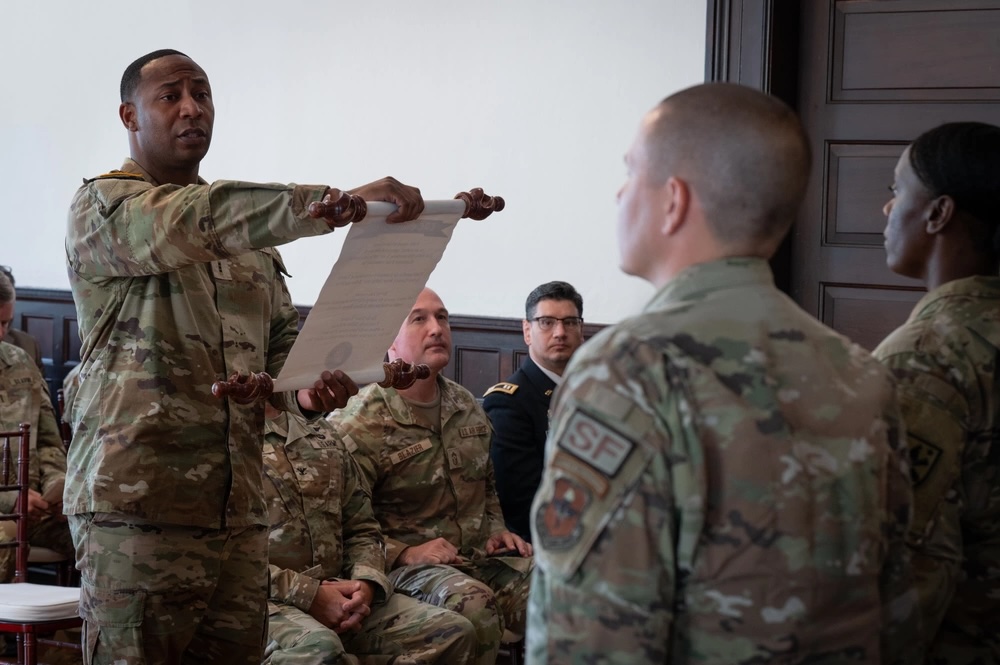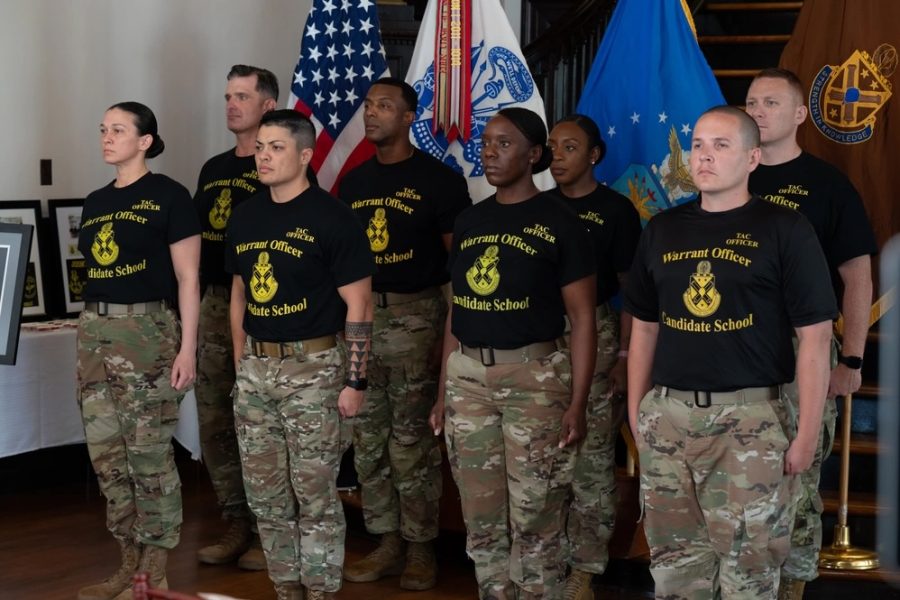The U.S. Army Warrant Officer Career College at Fort Novosel, Ala., usually trains Soldiers in the fine art of being warrant officers, who fill technical rather than leadership functions. But among one recent class of instructors were four Airmen who later this year will help train the Air Force’s first batch of new warrant officers in 66 years.
The Airmen—Master Sgt. Vernon Boyd, Master Sgt. Ryan Lawrence, Master Sgt. David Elliott, and Senior Master Sgt. Kayleigh McAviney—graduated July 19 from the Train, Advise, and Counsel Officer Certification Course, the first Airmen in history to do so.
In the Army, TAC officers prepare Soldiers for the responsibility of being warrant officers, and the new Air Force TAC officers will help prepare Airmen for the job later this year at the newly-opened Air Force Warrant Officer Training School at Maxwell Air Force Base, Ala., just a two-hour drive north of Fort Novosel.
The Air Force and Space Force are the only military services currently without warrant officers, but today the Air Force sees the reintroduction of warrant officers as a way to maintain an edge in two fast-moving technical fields: information technology and cybersecurity.
In the enlisted and commissioned officer ranks, Airmen often have to take career breaks for leadership and development roles as they rise through the ranks. The warrant officer track offers a different path.
“With perishable skills, like cyber, like IT, where the technology is moving so rapidly, folks who are experts in that can’t afford to be sent off to a leadership course for eight or nine months,” Alex Wagner, assistant secretary of the Air Force for manpower and reserve affairs, said April 9.
About 490 Airmen across the Active-Duty, Reserve, and Guard components applied for the warrant officer school which will train two eight-week classes of about 30 candidates each. The first class starts this October and the second in early 2025. After inheriting its warrant officer training from the Army decades ago, the service is using the reintroduction to develop a brand new regime, Maj. Nathaniel Roesler, the school’s commandant, told Air & Space Forces Magazine earlier this month.
“We’re not trying to make warrant officers into better cyber operators,” he explained. “They come to us with those skills, with years of practical experience. What we’re doing with them is building them into … the Air Force’s leading professional warfighters, technical integrators, and trusted advisors.”
In other words, what makes a warrant officer a warrant officer is not only technical knowledge, but also communication skills, legal awareness, ethical decision-making, strategic understanding, and emotional intelligence—skills that will be particularly important as Air Force warrant officers navigate a bureaucracy that has not dealt with their kind in decades.
“They will have an outsize impact,” Roesler said.

To get there, instructors will need to show them the way. The four Airmen who attended the TAC officer course put their joint warfare skills to good use to overcome the lost-in-translation moments that happen when troops from different branches, each with unique jargon and protocols, serve together.
“Attending an Army training course for the first time presented unique challenges, such as translating Army-specific language, acronyms, and processes, which were different from what we use in the Air Force,” one of the graduates, Master Sgt. David Elliott said in a July 22 press release. “I overcame these challenges by creating a personal glossary of terms and frequently consulting my instructor and my Army classmates.”
Another graduate, Senior Master Sgt. Kayleigh McAviney, said “the greatest benefit came from understanding the intricacies of how the Army and each specialty utilizes their warrant officers.”
The new instructors are eager to put their skills to work this October.
“We are receiving highly competent, driven, subject-matter experts, and giving them eight weeks of deliberate training,” Elliott said. “They will graduate and show up to commanders eager to show them the value warrant officers will provide.”
